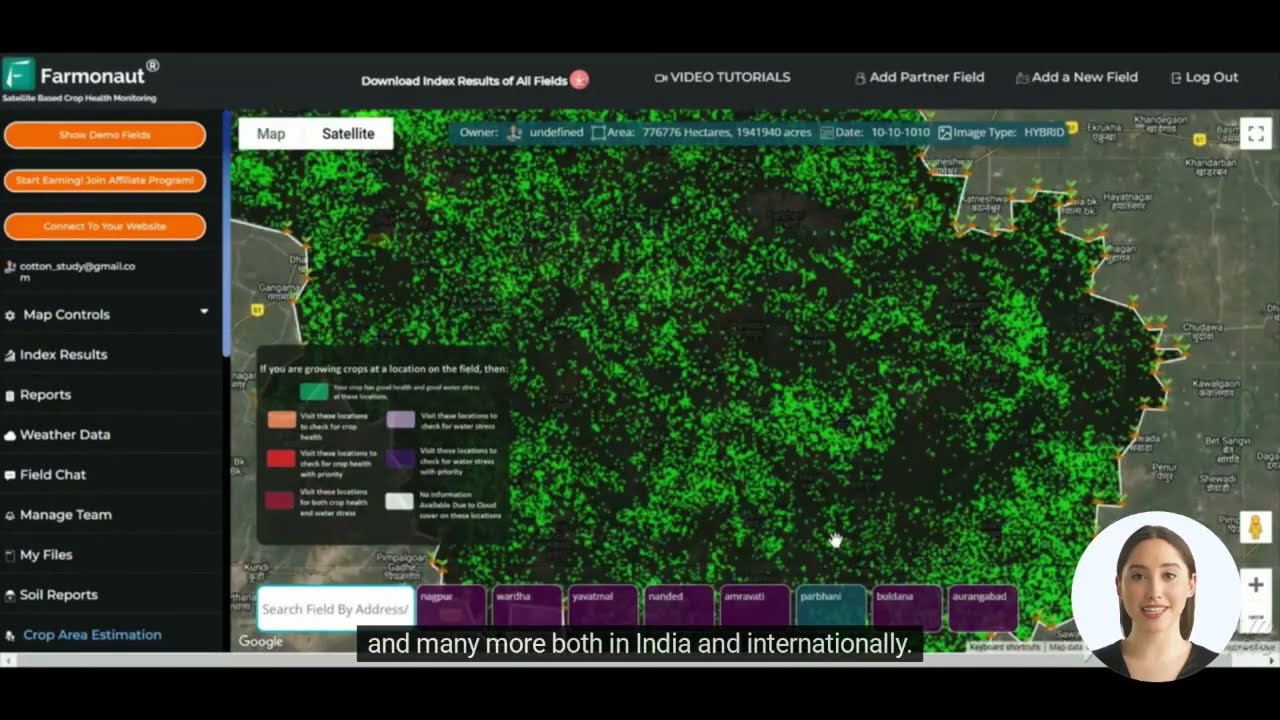USDA Suspends Crucial HBCU Agriculture Scholarship Program: Impact on Rural Education Access in Tennessee

“The USDA’s 1890 National Scholars Program, suspended in 2023, had been providing full-ride scholarships to land-grant HBCUs for 31 years.”
In a shocking turn of events, we’ve learned that the U.S. Department of Agriculture (USDA) has suspended a crucial scholarship program that has been instrumental in providing agricultural education opportunities to students at historically Black colleges and universities (HBCUs). This development has sent ripples through the agricultural education community, particularly in Tennessee and other states with land-grant HBCUs. As we delve into this issue, we’ll explore the far-reaching implications of this decision on rural education access and the future of agricultural sciences in underserved communities.
Understanding the USDA Scholarship Program Suspension
The USDA scholarship program, officially known as the 1890 National Scholars Program, has been a cornerstone of agricultural education at land-grant historically Black colleges since 1992. This program provided full-ride scholarships to students pursuing degrees in agriculture and related science fields at 19 HBCUs across the country. The sudden suspension of this program has left many questions unanswered and raised concerns about the future of agricultural education opportunities for students from rural and underserved communities.
Here’s what we know so far about the suspension:
- The USDA website now states that the scholarship “has been suspended pending further review.”
- The program has historically benefited students with a minimum 3.0 GPA, ACT score of 21, or SAT score of 1080.
- In 2024, 94 students were awarded scholarships worth over $19 million.
- The suspension affects all 19 land-grant HBCUs, including Tennessee State University in Nashville.
This suspension comes as a significant blow to efforts aimed at increasing diversity in agricultural sciences and providing educational opportunities to students who might otherwise struggle to access higher education.
The Impact on Tennessee State University and Other HBCUs
Tennessee State University (TSU), as one of the affected institutions, now faces uncertainty regarding its ability to offer these valuable scholarships to incoming students. The impact extends beyond just TSU, affecting all 19 land-grant HBCUs that have relied on this program to attract and support talented students in agricultural and science-related fields.
To better understand the scope of this suspension, let’s look at a table highlighting the potential impact across affected HBCUs:
| HBCU Name | State | Estimated Affected Students (per year) | Key Agricultural Programs | Potential Economic Impact on Local Community |
|---|---|---|---|---|
| Tennessee State University | Tennessee | 15-20 | Agricultural Sciences, Biotechnology | $500,000 – $750,000 |
| Alabama A&M University | Alabama | 10-15 | Food Science, Forestry | $400,000 – $600,000 |
| Tuskegee University | Alabama | 12-18 | Veterinary Medicine, Plant Sciences | $450,000 – $700,000 |
This table illustrates the potential loss of educational opportunities and economic impact across multiple states and institutions. The ripple effect of this suspension could be felt for years to come, affecting not just individual students but entire communities that benefit from the expertise and economic contributions of HBCU graduates in agricultural fields.
The Broader Context: Federal Diversity Programs in Education
The suspension of the USDA scholarship program doesn’t exist in isolation. It’s part of a broader conversation about federal diversity programs in education and their role in addressing historical inequities. Critics of the suspension argue that this move could significantly hinder efforts to address long-standing racial discrimination in the land-grant university system.
Congresswoman Alma S. Adams of North Carolina, a senior member of the Committee on Agriculture and Founding Chairwoman of the HBCU Caucus, called the suspension “infuriating,” stating, “This is a clear attack on an invaluable program that makes higher education accessible for everybody, and provides opportunities for students to work at USDA, especially in the critical fields of food safety, agriculture, and natural resources that Americans rely on every single day.”
It’s important to note that while the scholarship program was primarily aimed at supporting students at HBCUs, it was not explicitly limited to students of any particular race, gender, or ethnicity. This fact underscores the program’s role in promoting diversity and inclusion in agricultural education rather than creating what some might perceive as an unfair advantage.
Historical Context: Land-Grant Universities and Funding Disparities
To fully understand the significance of this scholarship program and its suspension, we need to examine the historical context of land-grant universities and the funding disparities that have long existed between predominantly white institutions and HBCUs.
Land-grant universities were established through the Morrill Acts of 1862 and 1890. The 1890 Act specifically led to the creation of land-grant HBCUs to provide agricultural and technical education to Black students who were excluded from other institutions due to segregation. However, these 1890 land-grant institutions have historically received less funding compared to their 1862 counterparts.
In recent years, there have been efforts to address these funding disparities. For instance, during the Biden administration, the USDA sent letters to governors highlighting the underfunding of land-grant HBCUs over the past 30 years. In Tennessee, it was claimed that TSU had been underfunded by $2.1 billion compared to the University of Tennessee-Knoxville, the state’s other land-grant institution.
The 1890 National Scholars Program was, in many ways, an attempt to correct some of these historical inequities by providing opportunities for students to pursue agricultural education at HBCUs. Its suspension, therefore, raises concerns about backsliding on progress made in addressing these long-standing disparities.
Impact on Rural and Underserved Communities
The suspension of the USDA scholarship program has significant implications for rural and underserved community education. Many of the students who benefited from this program came from rural areas and underserved urban communities, where access to higher education, especially in specialized fields like agriculture, can be limited.
Here are some key ways in which this suspension could impact these communities:
- Reduced access to higher education for students from low-income backgrounds
- Fewer opportunities for rural students to pursue careers in modern agriculture
- Potential brain drain from rural communities as students seek education elsewhere
- Decreased diversity in agricultural sciences and related fields
- Potential long-term economic impact on rural areas that rely on agricultural expertise
The loss of this scholarship program could create a significant gap in the educational pipeline that has been crucial for bringing diverse perspectives and talent into the field of agriculture.
The Role of Agricultural Education in Promoting Diversity
Agricultural education opportunities play a vital role in promoting diversity within the field and supporting underserved communities. By providing access to education in agriculture and related sciences, programs like the 1890 National Scholars Program have been instrumental in:
- Increasing representation of minority groups in agricultural sciences
- Promoting innovation and diverse perspectives in addressing agricultural challenges
- Supporting the development of community leaders who understand the unique needs of rural and underserved areas
- Fostering economic development in communities that have historically been left behind
The suspension of this program threatens to undo years of progress in these areas, potentially widening the gap in educational and economic opportunities between different communities.
Uncertainty for Current and Future Students
One of the most pressing concerns following the suspension of the USDA scholarship program is the uncertainty facing both current scholarship recipients and prospective students who were planning to apply. The USDA has stated that current scholars will be able to complete their studies, but questions remain about:
- The long-term funding stability for current scholars
- Opportunities for internships and employment with the USDA that were previously part of the program
- The impact on enrollment numbers for agricultural programs at affected HBCUs
- Alternative funding sources for prospective students who were counting on this scholarship
This uncertainty could have a chilling effect on enrollment in agricultural programs at HBCUs, potentially leading to a decrease in diversity within these crucial fields of study.
Responses and Reactions from Stakeholders
The suspension of the USDA scholarship program has elicited strong responses from various stakeholders in the agricultural education community. Here are some key reactions:
- HBCU Leaders: Many HBCU presidents and administrators have expressed concern about the impact on their institutions and students.
- Agricultural Organizations: Professional organizations in agriculture have voiced support for the scholarship program and called for its reinstatement.
- Student Advocacy Groups: Organizations representing minority students in agriculture have mobilized to raise awareness about the importance of the program.
- Political Figures: Several members of Congress, particularly those representing districts with HBCUs, have spoken out against the suspension.
These responses highlight the wide-reaching impact of the scholarship program and the broad coalition of supporters it has garnered over the years.
The Future of Agricultural Education and Diversity Initiatives
As we look to the future, the suspension of the USDA scholarship program raises important questions about the direction of agricultural education and diversity initiatives in higher education. Some key considerations include:
- The need for alternative funding sources to support diverse students in agricultural sciences
- The role of private sector partnerships in supporting agricultural education at HBCUs
- Potential legislative actions to reinstate or replace the suspended program
- The development of new initiatives to address historical funding disparities in the land-grant university system
It’s clear that addressing these challenges will require a concerted effort from multiple stakeholders, including government agencies, educational institutions, and private sector partners.
The Role of Technology in Agricultural Education
While the suspension of the USDA scholarship program presents significant challenges, it’s important to note that advancements in technology are creating new opportunities in agricultural education. Companies like Farmonaut are at the forefront of this technological revolution in agriculture, offering innovative solutions that can complement traditional agricultural education.
Farmonaut provides advanced, satellite-based farm management solutions that integrate cutting-edge technology with traditional farming practices. Their platform offers valuable services such as real-time crop health monitoring, AI-based advisory systems, and resource management tools. These technologies can enhance the learning experience for agricultural students and prepare them for the future of farming.
For students and institutions affected by the scholarship suspension, exploring these technological solutions could provide alternative pathways to gain valuable skills and knowledge in modern agriculture. Platforms like Farmonaut can offer practical, hands-on experience with the latest agricultural technologies, potentially bridging some of the gaps left by the suspended scholarship program.
Conclusion: The Path Forward
The suspension of the USDA’s 1890 National Scholars Program represents a significant setback for agricultural education and diversity initiatives in higher education. Its impact extends far beyond the 19 affected HBCUs, touching rural communities, underserved populations, and the future of agricultural sciences as a whole.
As we navigate this challenging landscape, it’s crucial that stakeholders from all sectors come together to find solutions. Whether through advocacy for the reinstatement of the program, the development of alternative funding sources, or the exploration of new technological approaches to agricultural education, the goal must be to ensure that diverse voices and perspectives continue to shape the future of agriculture in the United States.
The path forward will require creativity, collaboration, and a renewed commitment to the principles of equity and inclusion in agricultural education. Only by addressing these challenges head-on can we hope to build a more diverse, innovative, and resilient agricultural sector for future generations.
FAQs
- Q: What is the 1890 National Scholars Program?
A: It’s a USDA scholarship program that provided full-ride scholarships to students attending land-grant HBCUs for agriculture and science-related fields. - Q: How many institutions are affected by the suspension?
A: The suspension affects 19 land-grant historically Black colleges and universities. - Q: Will current scholarship recipients be able to complete their studies?
A: Yes, the USDA has stated that current scholars will be retained to finish their studies and complete their work with the Department. - Q: What are the potential long-term impacts of this suspension?
A: The suspension could lead to reduced diversity in agricultural sciences, decreased access to higher education for rural and underserved communities, and potential economic impacts on areas that rely on agricultural expertise. - Q: Are there alternative programs available for students who were planning to apply for this scholarship?
A: While there may be other scholarship opportunities available, the 1890 National Scholars Program was unique in its scope and focus. Students are encouraged to explore other federal, state, and private scholarship options for agricultural education.
“The suspension of the USDA scholarship program affects 19 historically Black colleges and universities, impacting rural and underserved communities’ access to agricultural education.”

Explore Farmonaut’s API | API Developer Docs


















